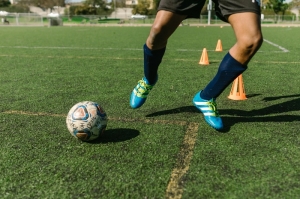Sports have been an integral part of human civilization for millennia, transcending cultural, geographical, and social boundaries. They have evolved from simple recreational activities to highly organized, competitive events that capture the attention of millions worldwide. This article explores the history, evolution, significance, and impact of sports in contemporary society, delving into various sports categories, their cultural importance, and their role in promoting health, unity, and even politics. more info : pmuvoyance
Historical Overview
Ancient Origins
Sports can be traced back to ancient civilizations where they served as a means of physical exercise, entertainment, and even religious rituals. The ancient Greeks are often credited with formalizing sports through events like the Olympic Games, which began in 776 BCE. These games included disciplines such as running, wrestling, and chariot racing, reflecting the Greeks' emphasis on physical prowess and competition.
In ancient China, activities such as archery, wrestling, and cuju (an early form of soccer) were popular, serving both as military training and leisure. Similarly, the Mayans and Aztecs of Central America played ball games like Pitz and Ullamaliztli, which held religious and cultural significance.
Medieval and Early Modern Periods
During the medieval period, sports continued to be an essential part of life, though often restricted to the nobility and upper classes. Jousting, archery, and various forms of hunting were prevalent among European knights and nobles. In contrast, common folk engaged in simpler games like football, which varied widely across regions.
The early modern period saw the standardization of many sports. For instance, cricket emerged in England in the 16th century, evolving from a children's game to a structured sport with formal rules. Similarly, the 19th century witnessed the codification of soccer (football), rugby, and baseball, laying the foundation for modern sports as we know them today.
The Evolution of Modern Sports
Industrial Revolution and Organized Sports
The Industrial Revolution brought significant social and economic changes, influencing the development of sports. Increased urbanization and leisure time, coupled with advancements in transportation and communication, allowed sports to become more organized and widespread. The establishment of clubs, leagues, and governing bodies in the late 19th and early 20th centuries marked the beginning of modern competitive sports.
Sports like soccer, rugby, and cricket gained immense popularity in Britain and were exported to its colonies, spreading these games globally. The United States saw the rise of baseball, basketball, and American football, each becoming deeply ingrained in the national culture.
The Olympics and Global Competitions
The revival of the Olympic Games in 1896 by Pierre de Coubertin was a pivotal moment in sports history. The modern Olympics aimed to promote peace and unity through athletic competition, bringing together athletes from various nations. Over the years, the Olympics have grown to become the pinnacle of international sports, showcasing a wide array of disciplines and fostering a spirit of global camaraderie.
Other global competitions, such as the FIFA World Cup, the Rugby World Cup, and the ICC Cricket World Cup, have further solidified sports' role in uniting people across the globe. These events attract massive viewership, generate significant economic impact, and create lasting memories for fans and athletes alike.
The Cultural and Social Significance of Sports
Sports as a Unifying Force
Sports possess a unique ability to bring people together, transcending differences in race, religion, and nationality. Major sporting events often evoke strong emotions and foster a sense of shared identity and pride. National teams, in particular, serve as symbols of unity, rallying citizens behind a common cause.
For instance, the 1995 Rugby World Cup in South Africa played a crucial role in the nation's reconciliation process post-apartheid. Nelson Mandela's symbolic gesture of wearing the national team's jersey and presenting the trophy to captain Francois Pienaar highlighted sports' potential to bridge divides and heal societal wounds.
Sports and Cultural Identity
Sports often reflect and reinforce cultural identities. Traditional sports and games offer insights into a community's values, history, and way of life. For example, sumo wrestling in Japan is more than a sport; it is a cultural ceremony with deep-rooted traditions and rituals. Similarly, Gaelic games like hurling and Gaelic football are integral to Irish cultural heritage, promoting local pride and community involvement.
In modern contexts, sports continue to shape cultural identities. Cities and regions are often associated with their sports teams, creating a sense of belonging and local pride. The "home team" concept fosters community spirit and collective support, as seen in cities like Liverpool with its football club or Boston with its baseball team, the Red Sox.
The Health Benefits of Sports
Physical Health
Engaging in sports provides numerous physical health benefits. Regular physical activity helps prevent chronic diseases such as obesity, diabetes, cardiovascular diseases, and certain cancers. It also improves overall fitness, strength, flexibility, and coordination.
Sports like swimming, cycling, and running are excellent for cardiovascular health, while resistance training and sports like weightlifting enhance muscular strength and endurance. Team sports, such as soccer and basketball, improve cardiovascular fitness while also promoting agility, balance, and coordination.
Mental Health
The mental health benefits of sports are equally significant. Physical activity triggers the release of endorphins, the body's natural mood lifters, which help reduce stress, anxiety, and depression. Sports also provide a sense of accomplishment and boost self-esteem, contributing to overall psychological well-being.
Moreover, sports offer opportunities for social interaction, which is crucial for mental health. Being part of a team or a sports community fosters a sense of belonging and support, reducing feelings of isolation and loneliness. The discipline, focus, and resilience developed through sports participation can also translate to improved mental health and coping mechanisms.
Economic Impact of Sports
Direct Economic Contributions
Sports significantly contribute to the economy through various channels. The sports industry encompasses professional leagues, clubs, events, merchandise, broadcasting rights, and more, generating substantial revenue and employment opportunities. Major sporting events like the Olympics or the FIFA World Cup involve extensive infrastructure development, tourism, and global media attention, providing significant economic boosts to host cities and countries.
Indirect Economic Benefits
In addition to direct contributions, sports offer several indirect economic benefits. They promote tourism, as fans travel to attend games and events, benefiting local businesses such as hotels, restaurants, and retail outlets. Sports also drive innovation and investment in related sectors, including sports technology, health and fitness, and media.
Furthermore, sports can enhance a city's or nation's global reputation and soft power. Successful sports teams and athletes often serve as ambassadors, enhancing their country's image and attracting international investment and partnerships.
The Role of Technology in Sports
Advancements in Sports Technology
Technological advancements have revolutionized sports in numerous ways. From equipment design and performance analytics to broadcasting and fan engagement, technology has enhanced every aspect of sports.
Modern equipment and apparel, designed using advanced materials and engineering techniques, improve athletes' performance and safety. For instance, innovations in running shoes, swimsuits, and protective gear have set new performance standards and reduced injury risks.
Performance Analytics and Data
Data analytics play a crucial role in modern sports, helping athletes and teams optimize performance and strategy. Advanced monitoring tools and wearable technology provide real-time data on various performance metrics, enabling precise training adjustments and injury prevention.
Teams use data analytics to analyze opponents, devise game strategies, and make informed decisions on player recruitment and development. This data-driven approach has transformed sports into a science, where success increasingly relies on a combination of skill, strategy, and technology.
Broadcasting and Fan Engagement
Technology has also transformed how sports are broadcast and consumed. High-definition broadcasting, virtual reality, and streaming services have enhanced the viewing experience, making sports more accessible and engaging for fans worldwide. Social media platforms allow fans to interact with their favorite athletes and teams, creating a more immersive and connected sports culture.
Sports and Education
Physical Education Programs
Sports play a vital role in education, contributing to students' physical, mental, and social development. Physical education programs in schools promote physical fitness, instill healthy habits, and teach valuable life skills such as teamwork, discipline, and leadership.
Participation in school sports also enhances academic performance by improving concentration, memory, and cognitive function. Students who engage in regular physical activity are more likely to achieve higher academic results and exhibit better behavior and attendance.
College and University Sports
In many countries, particularly the United States, college and university sports are a significant part of the educational experience. Collegiate sports programs offer students opportunities for personal growth, athletic development, and scholarships, making higher education more accessible.
These programs also serve as a talent pipeline for professional sports, providing a platform for young athletes to showcase their skills and progress to higher levels of competition. College sports events attract substantial attention and revenue, further integrating sports into the educational and social fabric.
Women in Sports
Historical Challenges and Progress
Women have historically faced significant challenges in sports, including limited access, funding, and media coverage. However, progress has been made over the past century, driven by social movements, legislation, and changing attitudes towards gender equality.
The introduction of Title IX in the United States in 1972 was a landmark moment, prohibiting gender discrimination in federally funded educational institutions and significantly increasing opportunities for women in sports. This legislation led to a dramatic rise in female sports participation at all levels.
Modern Achievements and Representation
Today, women's sports are gaining more recognition and respect, with female athletes achieving remarkable success and breaking barriers in various disciplines. Icons like Serena Williams, Simone Biles, and Megan Rapinoe have become global ambassadors for women's sports, inspiring millions of young girls to pursue athletic careers.
Despite progress, challenges remain, particularly regarding pay equity, media coverage, and representation in leadership positions within sports organizations. Continued efforts are needed to ensure that women receive equal opportunities and recognition in the sports world.
Sports and Politics
The Intersection of Sports and Politics
Sports and politics have always been intertwined, with athletes and sporting events often reflecting and influencing political climates. Sports can serve as a platform for political statements, social change, and national identity.
The use of sports as a political tool can be seen throughout history. For example, the 1936 Berlin Olympics were used by Nazi Germany to promote its ideology, while the 1968 Mexico City Olympics saw African American athletes Tommie Smith and John Carlos make a powerful statement against racial discrimination with their Black Power salute on the podium.
Sports Diplomacy
Sports diplomacy involves using sports as a means to improve international relations and promote peace. Sporting events and exchanges can foster dialogue, mutual understanding, and cooperation between countries.
The concept of sports diplomacy was notably evident in the "Ping Pong Diplomacy" between the United States and China in the 1970s. A friendly table tennis match between American and Chinese players helped ease tensions and pave the way for improved diplomatic relations between the two nations.
Modern Political Implications
In contemporary times, sports continue to play a significant role in political discourse. Athletes and sports organizations often take stands on social and political issues, using their platforms to advocate for change. Movements like "Black Lives Matter" have seen significant support from the sports community, with athletes kneeling during national anthems or wearing symbolic attire to raise awareness and demand justice.
The Future of Sports
Trends and Innovations
The future of sports will likely be shaped by ongoing technological advancements, evolving societal values, and changing consumer preferences. Emerging trends include the increasing use of artificial intelligence and machine learning in performance analytics, the growth of esports and virtual sports, and the focus on sustainability and environmental responsibility within the sports industry.
Innovations in sports medicine and rehabilitation techniques will continue to enhance athlete performance and longevity, while advancements in broadcasting and digital media will create more immersive and interactive fan experiences.
Challenges and Opportunities
The sports industry faces several challenges, including addressing issues of inequality, maintaining integrity and fairness, and adapting to changing economic and social landscapes. However, these challenges also present opportunities for growth and positive change.
Ensuring diversity and inclusion within sports organizations, promoting fair play and anti-doping measures, and leveraging sports as a tool for social and environmental impact are crucial areas for future focus. By addressing these challenges and embracing innovation, sports can continue to thrive and play a vital role in society.
Conclusion
Sports have come a long way from their ancient origins, evolving into a global phenomenon that touches nearly every aspect of human life. They offer numerous benefits, from physical and mental health to economic growth and social unity. As we look to the future, the challenge will be to ensure that sports continue to promote positive values, inclusivity, and innovation while remaining a source of joy and inspiration for generations to come. Through the collective efforts of athletes, fans, organizations, and policymakers, sports will undoubtedly continue to play a pivotal role in shaping our world.





